|
Primary Server/secondary data source overview. |
|
|
Primary Server/secondary data source configuration. |
Primary Server/Secondary Data Source Overview
The SQL Server storing data from the secondary server is the secondary data source.
The primary server must be aware of this data source. However, the only time the primary or secondary server will connect to the other node's database is when the data on the two servers needs to be merged.
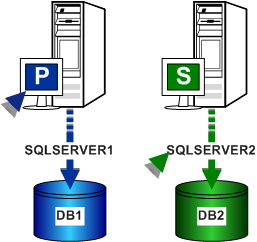
|
P |
= Primary Server |
|
S |
= Secondary Server |
Primary Server/Secondary Data Source Configuration
Enter specifications in the Create a new Data Source to SQL Server dialog box as follows:
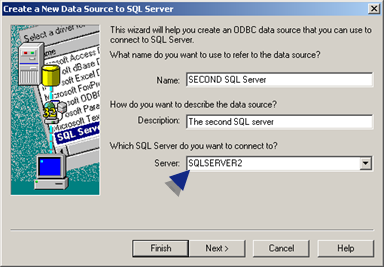
|
Field |
Description |
Example |
|
Name |
Unique for the secondary server data source. |
SECOND SQL SERVER |
|
Description |
(Optional) Description of the data source. |
|
|
Server |
The SQL Server for the secondary server. Note: Select the SQL Server from the drop down menu. |
SQLSERVER2 |
Click Next.
Enter specifications in the second Create a new Data Source to SQL Server dialog box as follows::
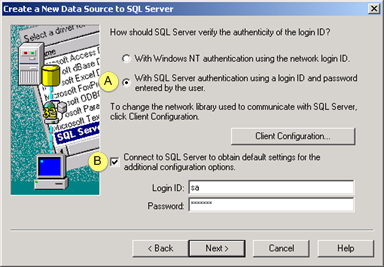
|
Check |
||
|
A |
With SQL Server authentication using a login ID and password entered by the user. |
|
|
B |
Connect to SQL Server to obtain default settings for the additional configuration options. |
|
|
|
The following fields are enabled. |
|
|
|
Login ID |
Required to access to database in the Login ID field. |
|
|
Password |
Password required to access the database |
Click Next.
Enter specifications in the third Create a new Data Source to SQL Server dialog box as follows:

|
A |
Check Change the default database to enable entry for default database. |
|
B |
Select the default database from the drop-down of default databases connected to the selected data source. |
Click Next.
Enter specifications in the fourth Create a new Data Source to SQL Server dialog box as follows:
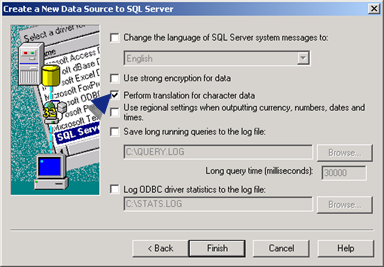
Check Perform translation for character data.
Click Finish.
An ODBC Microsoft SQL Server Setup screen displays the details of your configuration.
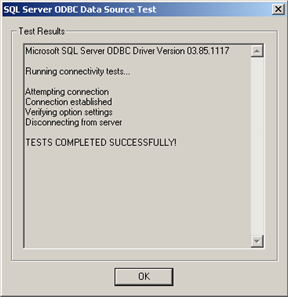
Click OK if the specifications are correct.
Result: The SQL Server data source is created and displays in the Data Source list on the System DSN tab.
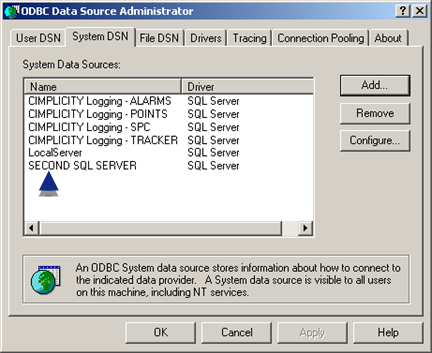
|
Step 1.1. Primary Server: Configure Windows ODBC data sources. |